This year was many things in the history of video games. It was the year that current consoles came into their own with multiple classic titles. It was the year virtual reality proved it was more reality than virtual. In other words, it was a good year to play games.
The following ten are my favorites from the past year. I don’t note them as the best, because I hate asserting “best” qualifications on anything. These are simply the ten games I played that I most enjoyed, or was at least most in admiration of.

Honorable Mention: Virtual Reality (PC, PS4)
The virtual reality future promised to us by 1992’s horror film The Lawnmower Man was a dark one filled with murder. The 2016 reality, the true dawn of virtual reality as a consumer device, has so far proven to have much more in common with the dark tale told by 1983’s anthology film Nightmares. Specifically, the segment titled “The Bishop of Battle” starring Emilio Estevez feels like a blueprint for Space Pirate Trainer, Raw Data, and Arizona Sunshine.
Strapping on a virtual reality headset for the first time and feeling magically transported to another realm where robots attack from all sides and you must physically dodge their blasts with your own physical body feels disturbingly similar to the final sequence in “The Bishop of Battle.” There’s almost a sense of panic that overrides your rational mind that knows this is simply a game. Other experiences like those found in Audoshield, Job Simulator, and Rec Room provide a similar sense of displacement.
Virtual reality experiences provided by PlayStation VR, Oculus Rift, and the HTC Vive are still in their infancy. Many of the games and “experiences” feel more like proof of concepts than full-featured software. Still, when it works (and it does work), it’s an experience like no other than can simply not be done justice in words. A lot of early talk surrounding virtual reality has fallen back on the refrain “you can’t describe it.” That’s accurate, if not entirely fair. Unlike motion controls pioneered by the Nintendo Wii and Xbox Kinect (though it uses both technologies), virtual reality really is the future.
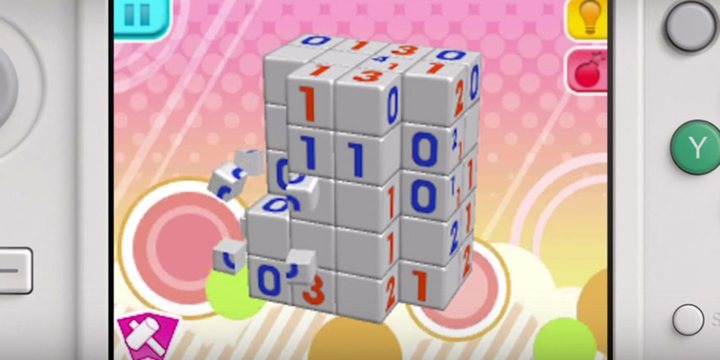
10. Picross 3D: Round 2 (3DS)
In fairness, I had to look up the history of nonograms. They’re Japanese puzzles laid out on a grid with numbers telling you how many squares in a row should be colored in. Think of them as Sudoku with less math—sort of.
I apologize for the terrible explanation, but I’ve always simply known nonograms as Picross, an electronic version marketed by Nintendo. Those games have always proved insanely fun, but this year’s version, Picross 3D: Round 2 might be the most extended fun I’ve had with a title all year. The hundreds of puzzles featured in the game will keep you busy for weeks or even months. Like Sudoku, there’s an addictive nature to its puzzles. I often play it before bed with the internal pledge of “just one more game.”
Picross 3D: Round 2 deserves special recognition for being a mobile game that actually holds my attention. While I recognize titles such as Clash of Clans continue to pull in millions of dollars, I can’t help but feel the mobile market is mostly a bore. If I have any hope for Nintendo’s mobile development, it’s that a title this polished might give me a reason to play games on my phone again.

9. Overcooked! (PC, PS4, XBO)
Couch multiplayer titles were once on the endangered species list of game genres. The advent of gaming online meant few people seemed to want to play games together in person. Over the last few years, however, they have seen a glorious resurgence. Titles such as Nidhogg, Ultimate Chicken Horse, and Keep Talking and Nobody Explodes have breathed exciting new life into the genre.
Overcooked continues this legacy with a simple premise that becomes wildly chaotic with multiple people playing at once. Think of it like those mobile Diner Dash games on steroids. You and up to three friends must fill dinner orders by cooperating or competing with one another. Did I mention that the levels move? Because they do as you try to complete orders flying down the highway on sometimes parallel flatbed trucks.
As noted, it’s chaotic but incredible fun. The resurgence of couch multiplayer titles has brought many volleys at the crown, but Overcooked is the only title this year that legitimately has a claim to it.
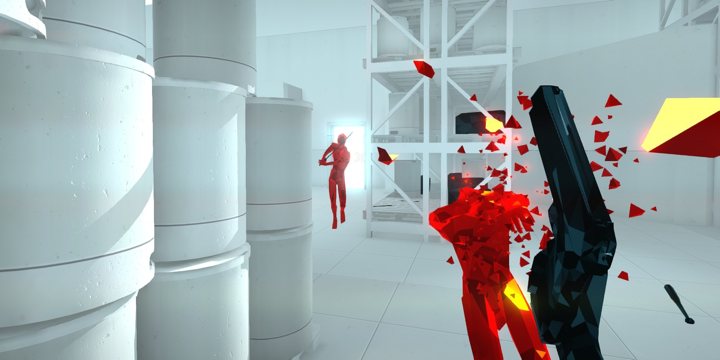
8. Superhot (PC, XBO)
Ever since The Matrix was released in 1999 video games have tried to ape its style of over-the-top fights and bullet time slow-motion effects. Max Payne, perhaps most famously, pulled off slowing down time to let you get a shot off while dodging others. Superhot takes it a step further by stopping time, except for when you move. In that way, it may have more in common with the Quicksilver scenes from the last two X-Men films.
Basically, time doesn’t just slow but stops when you’re not moving in Superhot. Look to your left or fire your gun, and the game world moves along with you. Enemies might shoot or swing a sword your direction. This might sound like an unfair advantage for you, and it is at first. However, the game quickly complicates itself with multiple enemies rushing you at once forcing you to engage in John Woo-style maneuvers where you fire your gun at one enemy, toss it at another, and catch it ricocheting off their head, before punching a third enemy with it. In its best moments, there was no game that made you feel cooler this year.
It should be noted that there was a Superhot VR also released this year that had the added complication of moving your head would also progress time. Don’t flinch.

7. Stardew Valley (PC, PS4, XBO)
The Harvest Moon franchise has for decades now tried to give players the simple pleasure of managing a farm. Over the iterative sequels it’s graphed on more and more distractions from that core gameplay, but has managed to remain a unique experience in a very cookie cutter game industry. Until now, that is.
Stardew Valley isn’t the first title to copy Harvest Moon, but it’s likely the most successful. That’s more even more impressive when you consider just one person made it. So, what do you do? Well, you farm. However, you might also want to meet a spouse. You’ll have to woo them first, of course. Don’t ignore the other townsfolk though, because they might prove alluring spouses, or have items or deals for you. While you’re doing all this you’ll also need to repair the town’s community center, but do you accept help from the conglomerate that might erode your small-town feel?
Subtle this isn’t, but fun it most definitely is. It’s the kind of game you could easily sink over a hundred hours into without realizing. Can it be monotonous? Sure, but so can daily life. Stardew Valley’s a lot more colorful in its monotony.
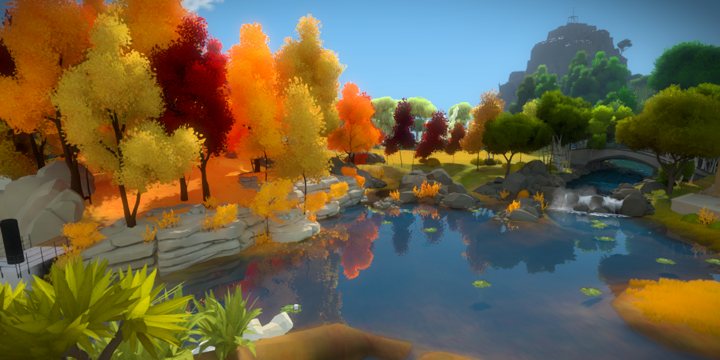
6. The Witness (PC, PS4, XBO)
During the height of the TV series Lost’s popularity they made a video game based upon it. It was terrible. The Witness is a great game with its roots in Lost, or maybe Myst? It’s a puzzle game without a story, except for the one the island itself tells you. And what an island it is!
The core gameplay is centered around a series of line puzzles. On their surface, they’re deceptively simple to begin with. Very quickly, however, they ratchet up the difficulty and begin to layer puzzles upon puzzles, and then those upon physical island environments that change the way you see the very island itself. To reveal more would be telling, but suffice it to say, just when you think you’ve reached the end the game begins peeling back new mysteries.
It’s a puzzle game for people who love adventure games, or maybe vice versa. Either way, both groups received a real treat this year.
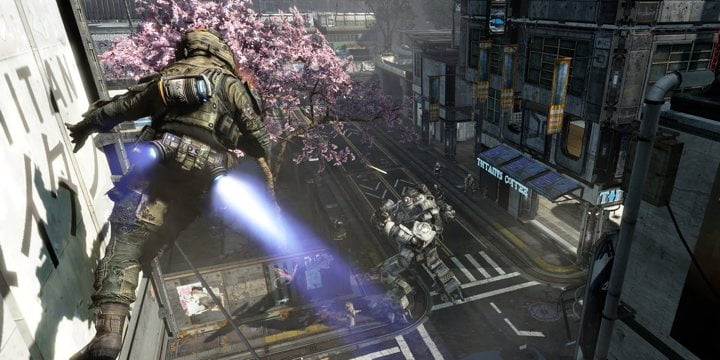
5. Titanfall 2 (PC, PS4, XBO)
I should confess that I don’t care much for multiplayer shooters. I find them fun in short bursts, but I quickly tire of the gameplay. That’s why you won’t find a title like Overwatch on this list, despite its undeniable quality. So, how does the sequel to a game that lacked any real single-player experience end up here?
Titanfall 2’s single-player campaign isn’t a revelation, but it is a huge surprise. The story portion of shooters has become more and more of an afterthought in recent years. Call of Duty still spends big (and this year’s Infinite Warfare is an honorable mention here), but many studios are cutting back on this portion of their games or eliminating it altogether (see Overwatch). Titanfall 2’s campaign takes what people loved about the original’s multiplayer and begins tweaking it. Loved the mobility? Great, it’s on full display here, but then it slowly begins to ratchet up what it asks of you in fun and inventive ways. I won’t reveal how, but you’d be doing yourself a grave disservice if you skipped this campaign and went straight to the multiplayer.
Speaking of that multiplayer—it’s great. It’s everything you love about the original improved upon, with the slick addition of the Networks feature that helps ensure you’ll always have someone to play with.
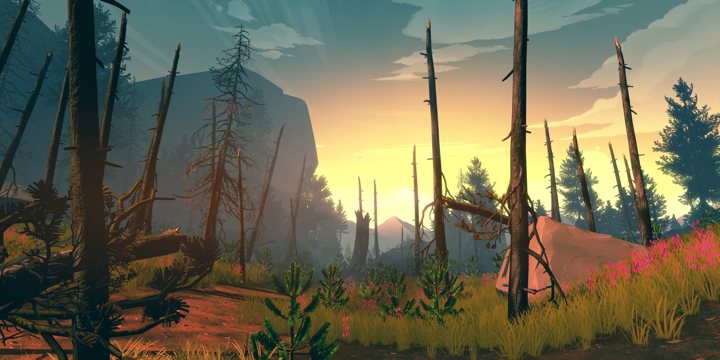
4. Firewatch (PC, PS4, XBO)
Firewatch belongs to an ever-growing genre of games derisively referred to as “walking simulators.” Telltale’s titles and the wonderful Gone Home populate this category. More fairly, they lie somewhere between traditional adventure games and interactive narratives. Regardless of genre, however, Firewatch is an amazing game.
To reveal too much of the story would ruin the experience, but speaking broadly you spend most of the game wandering the woods while speaking to your colleague on the other end of a walkie-talkie. That’s it. There’s a narrative that unfolds as you do, but the game at the beginning is the same at the end—simply augmented by deeper understanding of the characters and healthy dose of deepening paranoia.
Moreover, it’s a beautiful game. It’s a testament that not every game needs to be photorealistic in style, or is even best served by doing so. What is Firewatch? One of the best games of the year.
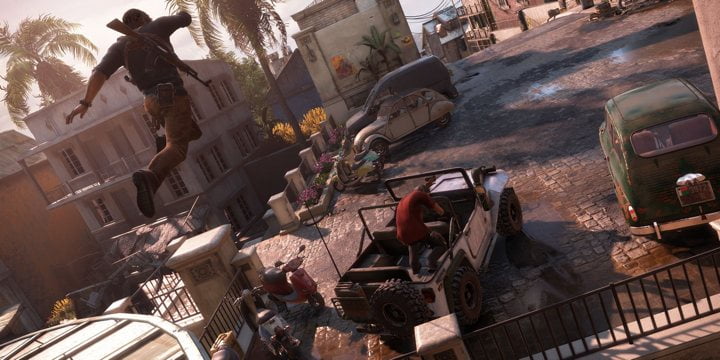
3. Uncharted 4: A Thief’s End (PS4)
The announcement of a fourth Uncharted game felt anticlimactic. The third title had wrapped up the trilogy’s story and seemed to leave it in a definitive space. So, I popped the disc into my PlayStation 4 with some trepidation.
A Thief’s End delivers the same tight gameplay I’ve come to expect from the Uncharted series. The gunplay and climbing mechanics are tight and you never feel like you fail because of bad gameplay design. It features the same jaw-dropping set pieces, with the ascent of the clock tower and motorcycle chase being two that rival anything in the previous titles. The same charismatic characters and witty banter also come along for the ride. All of that would have made Uncharted 4 another excellent entry in the series, just like the unfairly maligned Uncharted 3. It’s what it does with its story that sets it apart.
Simply put, Uncharted 4 had the best story in any video game this year. It’s a tale that winds forwards and backwards through Drake’s life in surprising ways. There are turns that feel less like twists and more like the peeling back of layers of a great pulp novel, revealing character where only archetype had been before. The game’s final epilogue is an emotional journey that makes you sad to say goodbye to a good friend, while also happy to have known him and see where he has ended up.
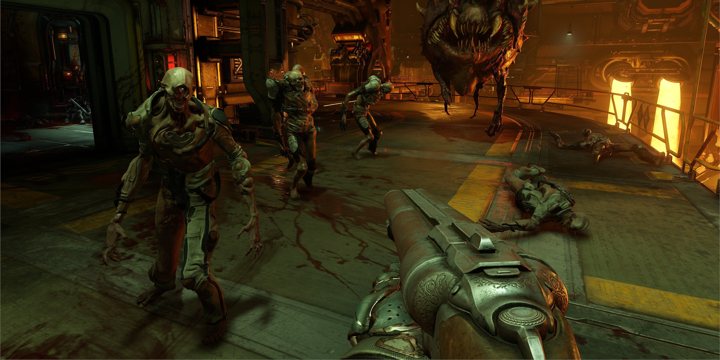
2. Doom (PC, PS4, XBO)
The original Doom was released way back in 1993 and as the spiritual-successor to Wolfenstein 3D, it helped jump start both the first-person-shooter craze and the rapid growth of PC gaming hardware due to its successor, Quake. It was followed by a much-beloved sequel in Doom 2, and a much-maligned sequel to that in Doom3. Then, there was nothing for years. The Doom series, fittingly, languished in development hell. You can watch Danny O’Dwyer’s excellent documentary for more on that.
Then suddenly there was new life in a title simply referred to as Doom. People got excited, and then a trailer for the game was released. It looked underwhelming to say the least. The developer refused to ship early review copies to journalists (almost always a bad sign), and generally public sentiment tanked for the title. Finally, it was released to almost universal acclaim.
How do you rejuvenate a 23-year-old franchise? You go back to basics with a fast-moving shooter that requires no reloads. You throw in plenty of secrets. You toss in a risk-reward system that requires you to get in close to enemies and use melee attacks. Doom is the most shocking release of the year in just how good it turned out to be. Poll a hundred people and they wouldn’t be able to tell you what they want out of a new Doom game, and yet the developers delivered exactly what people didn’t know they wanted. It’s a testament to standing back and letting the professionals do their jobs.
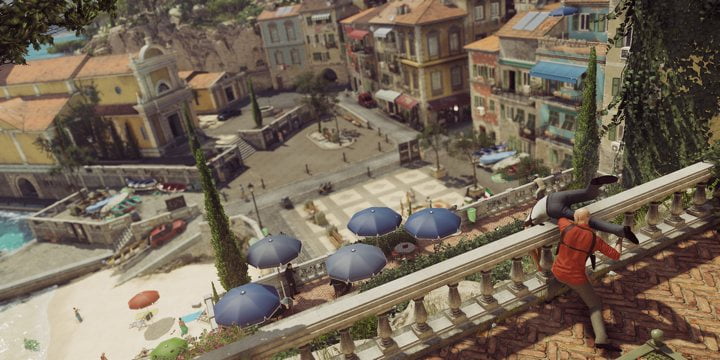
1. Hitman (PC, PS4, XBO)
If any game can lay claim to delivering on being more than the sum of its parts, Hitman is the one. Prior to its release the story of the game was that it was coming off a poorly-received previous installment (2012’s Hitman: Absolution), had switched to an episodic release format (which only Telltale’s adventure titles had achieved successfully) and that preorders had been cancelled last minute. Then it came out and each subsequent episode basically improved on the last and it became one of the most popular titles of the year.
It’s one of the few titles to ever deliver on the feeling that you’re in a living world where almost anything can happen. Want to knock out that chef and poison your target’s food? Entirely possible. Rather pretend you’re the target’s golf coach and replace his ball with an exploding one? You can do it. Drop a toilet on their head? Check. Lure them into danger with their dead mother’s favorite music? No problem.
This may not sound your speed, but it’s incredibly lively and fun. Even the time-limited events that happen every few weekends feel fresh and innovative.

